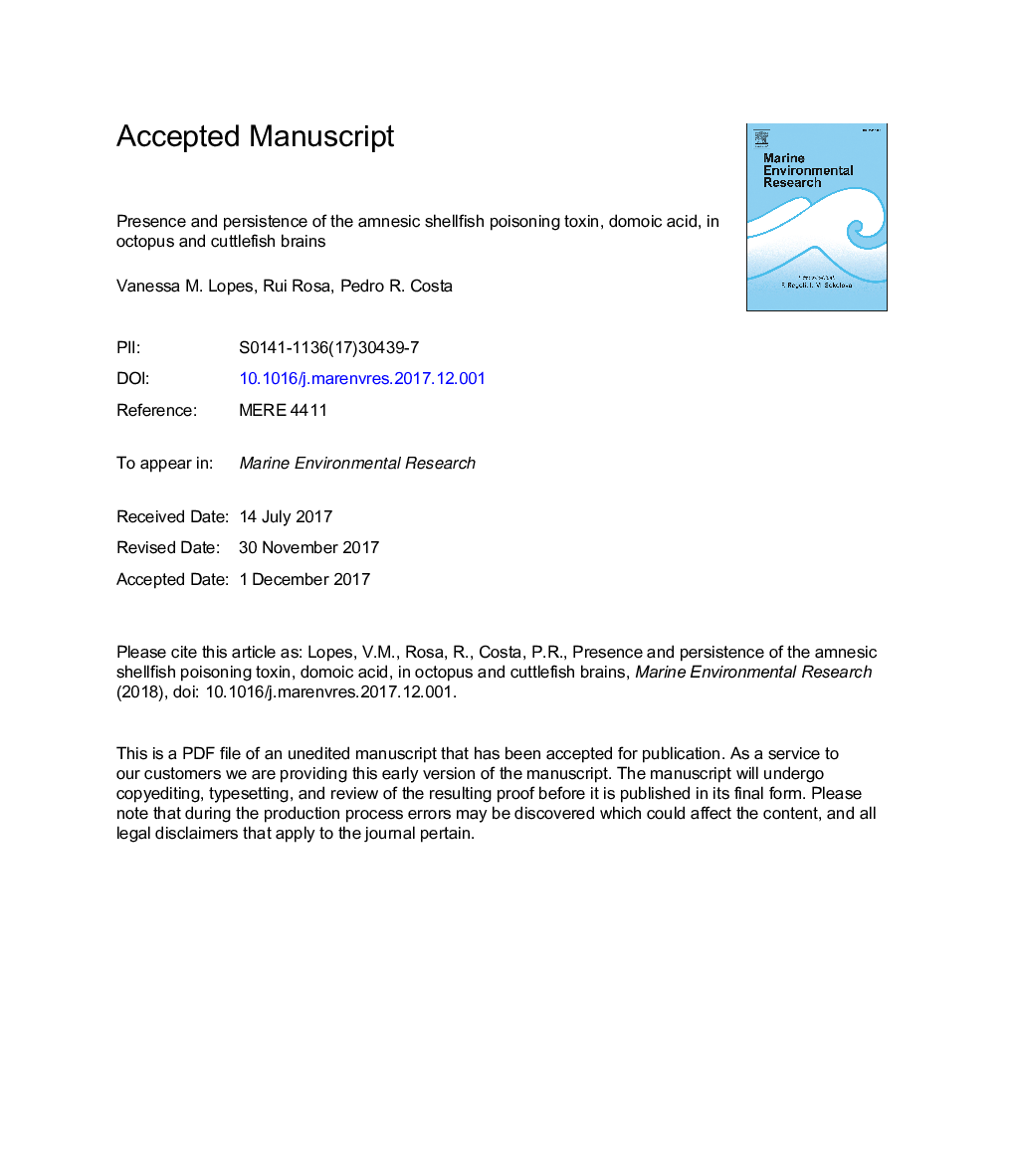| کد مقاله | کد نشریه | سال انتشار | مقاله انگلیسی | نسخه تمام متن |
|---|---|---|---|---|
| 8886395 | 1627550 | 2018 | 14 صفحه PDF | دانلود رایگان |
عنوان انگلیسی مقاله ISI
Presence and persistence of the amnesic shellfish poisoning toxin, domoic acid, in octopus and cuttlefish brains
ترجمه فارسی عنوان
حضور و ماندگاری سمی مسموم مونوکسید سمی، اسید دوموئیک، در هشت پا و مغز
دانلود مقاله + سفارش ترجمه
دانلود مقاله ISI انگلیسی
رایگان برای ایرانیان
کلمات کلیدی
اسید دوموئیک، مغز، سفالوسکوپی، اختاپوس، دهقان ذخیره سازی بیولوژیک، سموم جلبکی سمی بودن
موضوعات مرتبط
مهندسی و علوم پایه
علوم زمین و سیارات
اقیانوس شناسی
چکیده انگلیسی
Domoic acid (DA) is a neurotoxin that causes degenerative damage to brain cells and induces permanent short-term memory loss in mammals. In cephalopod mollusks, although DA is known to accumulate primarily in the digestive gland, there is no knowledge whether DA reaches their central nervous system. Here we report, for the first time, the presence of DA in brain tissue of the common octopus (Octopus vulgaris) and the European cuttlefish (Sepia officinalis), and its absence in the brains of several squid species (Loligo vulgaris, L. forbesi and Todarodes sagittatus). We argue that such species-specific differences are related to their different life strategies (benthic/nektobenthic vs pelagic) and feeding ecologies, as squids mainly feed on pelagic fish, which are less prone to accumulate phycotoxins. Additionally, the temporal persistence of DA in octopus' brain reinforces the notion that these invertebrates can selectively retain this phycotoxin. This study shows that two highly-developed invertebrate species, with a complex central nervous system, where glutamatergic transmission is involved in vertebrate-like long-term potentiation (LTP), have the ability of retaining and possibly tolerating chronic exposure to DA, a potent neurotoxin usually acting at AMPA/kainate-like receptors. Here, we filled a gap of information on whether cephalopods accumulated this neurotoxin in brain tissue, however, further studies are needed to determine if these organisms are neurally or behaviourally impaired by DA.
ناشر
Database: Elsevier - ScienceDirect (ساینس دایرکت)
Journal: Marine Environmental Research - Volume 133, February 2018, Pages 45-48
Journal: Marine Environmental Research - Volume 133, February 2018, Pages 45-48
نویسندگان
Vanessa M. Lopes, Rui Rosa, Pedro R. Costa,
